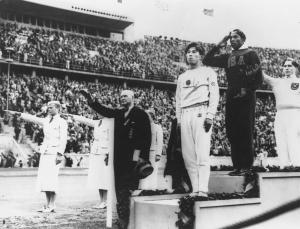|
Who is your favorite hero? What do you think of heroes? Perhaps as soon as you heard 'hero', you thought of the superheroes in the Marvel or DC comics. The word 'hero' has many meanings. It includes not only the superheroes we often think of but also those who have done righteous things in the real world or who left their name behind historically. The word 'hero' comes from the Greek word ἥρως (hērōs), which means 'guardian' and 'protector’, especially who have a sacred bloodline or perform divine work. Starting from this origin of the word, we use 'hero' to refer to a gender-neutral hero or male hero, and 'heroine' to refer to a female hero. In modern times, hero refers to a person who is excellent in wisdom, talent, and bravery and does what is difficult for ordinary people. What matters here is not wisdom, talent, or bravery. These are the virtues and recommendations of a hero, not essential points. The important thing is a person who accomplishes the work that impossible for the ordinary. Therefore, there exist heroes without supernatural power in history and reality as well as in literature or fiction. Heroes did not first appear in modern times, they have existed longer than you may have thought. The types of heroes are enormously diverse. According to the times, people's desires have changed their form and the meanings of existence. Therefore, I would like to introduce the meanings of heroes and heroes that represent the times.
From when was poetry first created? Because human history is thousands of years old, the first poem may not have been found yet. However, there is a poem which is considered to be the oldest among the poems found so far. It is the 'Epic of Gilgamesh'. It is an epic of the ancient Mesopotamian civilization which sings about the legendary King Gilgamesh of Uruk, a city in the south of Sumer. The 'Epic of Gilgamesh' consists of twelve epic journeys of Gilgamesh, the king of Uruk, which deal with the problem of human life and death. The main character of the 'Epic of Gilgamesh' is Gilgamesh, who is two-thirds a god, and one-third a human. At the beginning of the story, Gilgamesh with his superhuman powers harasses people, incurring the people's resentment. So, the people pray to create a monster that could defeat Gilgamesh. Then a monster named Enkidu is born. However, the two become friends while fighting, and Gilgamesh becomes a new man and goes on a journey. During the journey, Gilgamesh is tempted by the goddess Ishtar, but he rejects her, so the angered goddess Ishtar sends the monster Bull of Heaven to kill Gilgamesh. However, Enkidu and Gilgamesh kill the Bull of Heaven and incur the anger of the gods. So, the gods take Enkidu's life as punishment. Gilgamesh loses his friend, Enkidu, who was thought to be eternal. While mourning him, Gilgamesh becomes afraid of death and leaves his journey to find eternal life. After experiencing a rough journey, Gilgamesh meets Utnapishtim, a survivor of the Great Flood. Utnapishtim says that Gilgamesh should stay awake as long as the Great Flood lasted if he wants to gain eternal life, but Gilgamesh fails to do so and leaves. Utnapishtim, who pities this, tells Gilgamesh the place where there is a plant for making an elixir for eternal life. On the way to find the elixir plant, a snake steals and eats the elixir and Gilgamesh realizes that death cannot be avoided. He returns to Uruk Castle with sadness. And in a dignified attitude, he dies in front of his people. It is unusual is that the first hero was not as good and devoted as they are now. Rather, he started as a villain. However, by becoming a new person, he was faithful to the hero's adventure in literature. Heroes who fight on the side of justice like they do today emerge from the later Greek epics. For example, in the 'Odyssey' and the 'Iliad', a number of righteous heroes emerge under the great event of the war between Greece and Troy. What these ancient epic poems have in common is that the heroes submit to what cannot be done by human power, especially death and natural disasters. Gilgamesh adventured to avoid death but eventually died, and Odysseus, the hero of the 'Odyssey,' wandered the boundless ocean for 20 years due to the storm. In the 'Iliad', Achilles, the human who had immortal body, is killed by his only weakness. The ancient people challenged the mysterious world through creating heroes in epics. However, seeing the heroes' death, people had to consider death carefully, particularly their fear about death, interest in the afterlife, and longing for eternal life. This affected epics, heroes, myths, and religions.
The hero in ancient times was a means to overcome the fear of the unknown, and the story of the hero was a contemplation on human limitations. The meaning of the existence of these heroes changed greatly in the Middle Ages. The medieval period was literally a time when the Pope and religion were above an emperor and the country. Catholicism, especially in the West, dominated Europe beyond the country’s borders. In addition, the knight, a noble class which developed independently, appeared at the same time. As the knights for the nobility-born came to conspire with Catholicism, heroes were needed to fight for God under the name of Catholicism. Because of this social background, paladins, heroes who practiced Noblesse Oblige, the Catholic doctrine, and medieval chivarly, appeared. With the advent of the paladin, Catholicism had to create a strong enemy to make the story of the hero. That was a dragon, the legendary beast. Originally, dragons also existed in ancient Greek epic poems, but especially they were highlighted in the Middle Ages. In Catholicism, these dragons were treated as devils and considered as the enemies of God. Thus, in the Middle Ages, the heroes who fought evil dragons in the name of God appeared nationwide.
St. George is the most famous hero and saint in Catholicism. He was a noble who was born in Cappadocia and was a soldier of the Roman Empire. An evil dragon appeared in Silene, a small country in Libya. The dragon demanded human sacrifices every day. The king inevitably gave a young person every day to the dragon, but when there was no man to send, he gave his only daughter as a sacrifice. However, just before the dragon swallowed the princess, St. George ran and subdued the dragon at once with a long lance. St. George, who rescued the princess, relieved the people. He told them to convert their religion because he would defeat the dragon in the name of Christ. St. George, who had converted the people and had been carrying the dragon's head, left Silene, and was later arrested and executed under the persecution of the Roman emperor.
Joan of Arc is a French heroine and Roman Catholic saint called The Maid of Orleans. Joan of Arc was the daughter of a farmer in the northeastern province of France. Her hometown was in state of confusion because of the Hundred Years' War between France and England, which been ongoing since before her birth. While such confusion persisted, in 1425, the just 13-year-old girl, Joan, came to hear the voice of God. Confused by the words "Save France", she refused, but in 1428, the 16-year-old Joan of Arc decided to obey. Over several trials, Joan of Arc went to visit Charles VII and after being officially appointed, she joined the Hundred Years' War. She liberated Orléans in only ten days. She made the Hundred Years' War a French victory, but after the war, she was mistaken as a witch and was executed. Twenty-five years later, Charles VII restored the honor of Joan of Arc.
These heroes of the Middle Ages had no choice to be based on Catholicism, which was the most prominent background of the times and society. The story of the hero made in Catholicism to spread the Catholic doctrine was popular. However at the end of the Middle Ages and socially chaotic time, heroes like Joan of Arc that people wished for emerged. The desire to overcome social confusion and war became the driving force for the emergence of new heroes after the Middle Ages.
In the class-based society before the modern times, the heroes who achieved the desires that ordinary people could not achieve appeared. In particular, these heroes took the place of people's wish to criticize the society and class discrimination and to create a new world. After the era of the heroes who existed and appeared in the literature, the story of the hero gradually diminished in the modern era, when all are equal and want to realize their ideals with individual ability. As people became able to lead their life through their own efforts and without discrimination, people were no longer leaning on heroes. However, now, heroes are again highly popular. As science developed, the uncharted territories shrank, and human technology reached magic-like levels, it became clear that heroes with supernatural abilities could not exist in reality. Therefore, the hero appeared again in front of us in the form of superheroes. The word 'superhero' is believed to have originated in 1916. Superheroes can be created in a variety of ways, such as not merely having superhuman powers or being affected by gods from birth like in the past, but also from possessing outstanding skills, personal abilities, and technological side-effects. For example, among DC’s and Marvel's superheroes, which lead the superhero culture, there are Batman and Iron Man. Both lose their parents in childhood, but they grow up as heroes who help people with their own advanced skills, personal abilities and efforts, and with the help of people around them. As the category of qualifications to become superheroes widens, many ordinary and unusual people become superheroes and we are enthusiastic about such things. Why are we enthusiastic about superheroes now? Firstly, the hope became realizable, that the individual's effort, ability, and advanced technology can someday make us heroes. Secondly, there are problems again that cannot be solved by the individuals in reality. The enemies of the hero who appeared again under the social system through modern times have many social problems, from misuse of science and technology, the lack of human ethics, and the rich-poor gap. People want heroes to block the blind spots that exist even if the law exists. And people want to feel the catharsis in the practice of justice by disposing of evil which cannot be managed in society. Lastly, it is the recovery of individual self-esteem. Superheroes let modern people who have lost their self-esteem feel better. People can make pleasant imaginations through seeing heroes’ stories. So, the superhero culture will grow even bigger.
Humans have always wished for the emergence of heroes, from ancient Sumer and Babylonia through the Middle Ages and modern times to the present days. The shape of the hero, the trace of the hero, and many aspects of the hero have changed. People have constantly tried to step into the uncharted areas, to break old-fashioned customs and social problems, and to reach the ideal through their individual efforts. The hero that appeared every time was the appearance of such people. Therefore, the hero can be regarded as fulfillment humans’ wishes. In fact, it may be better for a hero not to exist. But now many people are looking for superheroes, and this culture will continue to spread. That means there are still problems in the world and some people are bitter about their ability that cannot solve those problems. Heroes are ideals of society and the times. Will we need a hero when the problems can be solved ourselves? It’s hard to know. It might be better that we would live in a better society if we lived in the society without heroes and where we do not want heroes. |
Choi Bugeun hsy4473@naver.com
<저작권자 © 홍익대영자신문사, 무단 전재 및 재배포 금지>





